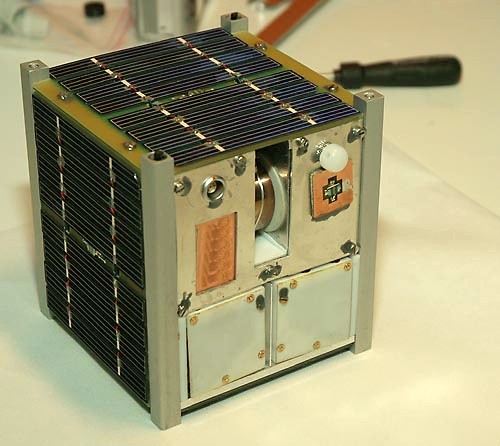Shout-out to Ghanaians in STEM!
An All Nations University engineering team has produced the first Ghanaian satellite to orbit the Earth: the GhanaSat-1.
The cubesat, delivered to NASA’s International Space Station in June, began its life in orbit in July, Tech Crunch reports.
A cubesat is so-named because it has a modular design, and is made up of 10 by 10 by 10 cm cubes.

“This particular satellite has two missions,” said project manager Richard Damoah, a Ghanaian professor and NASA assistant research scientist. “It has cameras on board for detailed monitoring of the coastlines of Ghana. Then there’s an educational piece ― we want to use it to integrate satellite technology into high school curriculum.”
The All Nations University’s Space Systems and Technology Laboratory GhanaSat team consisted of a talented group of engineers, including Benjamin Bonsu, Ernest Tey Matey and Joseph Quansah.
According to Damoah, the project didn’t come together easily. Throughout the development of the satellite, the group struggled with a lack of government resources. However, Japan’s national space agency, JAXA, stepped in to fill the void, providing the engineers with resources and training for satellite development.
“After this launch, we now have the support of the president and cabinet support,” Damoah said, referencing Ghanaian president Nana Akufo-Addo's official congratulations to the team. “We are looking to develop a GhanaSat-2, with high resolution cameras, that could monitor things such as illegal mining, water use and deforestation in the country.”

The launch is the beginning of what may be increased activity within Africa’s space exploration sector.
“Several nations, such as South Africa, Nigeria, Kenya and Ethiopia have space agencies. Angola announced its intention to launch a satellite over the coming year,” said Head of Africa at the World Economic Forum, Elsie Kanza. Nigeria’s first cubesat joined GhanaSat-1 on the same SpaceX mission.
Watch out universe, and make way for Africa!


